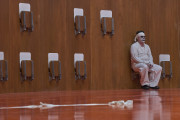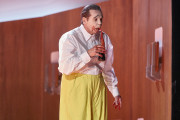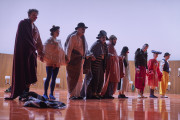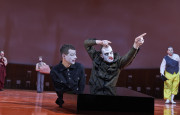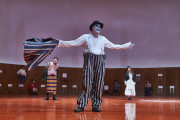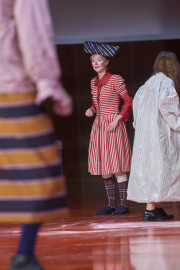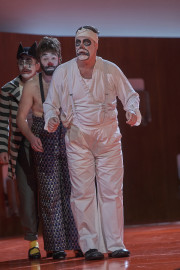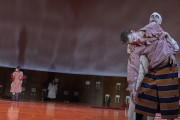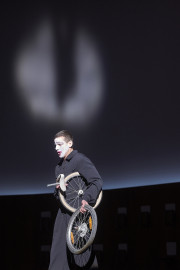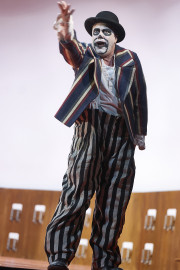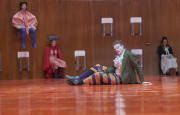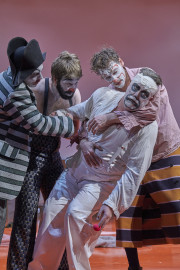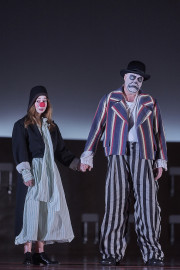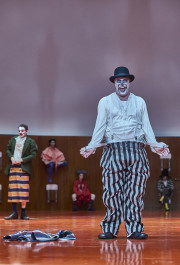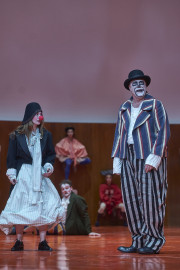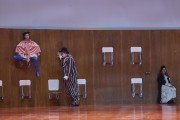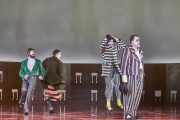THEATERTAG: Dantons Tod
In times of escalating political conflicts all around the world, one of the most pressing questions is whether it is possible to defend freedom by violent means. Georg Büchner’s 1835 drama, Danton’s Death, which is set during the French Revolution, highlights the unsolvability of this problem and clearly illustrates the devastation that both victims and perpetrators suffer in the aftermath of violence. Director Johan Simon presents Büchner’s ideas as eternally relevant, which makes the audience’s theatre experience all the more intense. On Theatre Day, the human rights organisation Amnesty International will participate in a discussion that aims to clarify how the play relates to the present and to home in on critical questions.
One-time special price incl. discussion €6.00
Introductory talk at 7.15 pm and audience discussion after the performance with Shoura Zehetner-Hashemi (Director of Amnesty International Austria), members of the ensemble and Sebastian Huber (dramatic script editor).
Moderation: Eva Konzett, FALTER
In cooperation with Amnesty International & FALTER
About the piece
Danton and Robespierre only meet face to face for one short moment in Georg Büchner’s drama DANTON’S DEATH. “Any man who keeps me from defending myself is my murderer just as surely as if he attacked me,” says the one. “Where self-defence ends, murder begins,” says the other. At this point they are three and a half years into the French Revolution, which started with the Storming of the Bastille in July 1789. Ever since, the country has been both with and without a king, there have been different constitutions and forms of government – until six months ago, when a transitional dictatorship seemed like the only option, given the internal and external threats and the hunger in the streets. It all began with the 1793 September Massacres, when the population was looking for enemies of the republic and stormed the prisons, killing thousands of inmates – and Danton did nothing to stop it.
The business of violence as a political instrument is booming (the share prices of arms companies are soaring to new heights), and it has always been justified with the argument of self-defence. Even the severely traumatised Danton, hearing the hordes chanting “September” in the streets, legitimises his actions by citing his right to defend himself: “It was self-defence; we had no choice.” But who decides at what point self-defence tips over into its excess and becomes murder? Who names the price and counts the victims? “Who spoke that Must? Who?”
-
George DantonNicholas Ofczarek,
-
Camille DesmoulinsFelix Rech,
-
LacroixJohannes Zirner,
-
PhilippeauMaximilian Pulst,
-
RobespierreMichael Maertens,
-
St. JustJan Bülow,
-
SouffleurOle Lagerpusch,
-
JulieAnnamária Láng,
-
LucileMarie-Luise Stockinger,
-
MarionAndrea Wenzl,
| Beschreibung | Information |
|---|---|
| Dauer und Pausen | 2 Stunden - keine Pause |
| Sitzplan | A |
| Zusatzinformation | einmaliger Sonderpreis € 6,- in Kooperation mit Amnesty International Österreich & FALTER |
